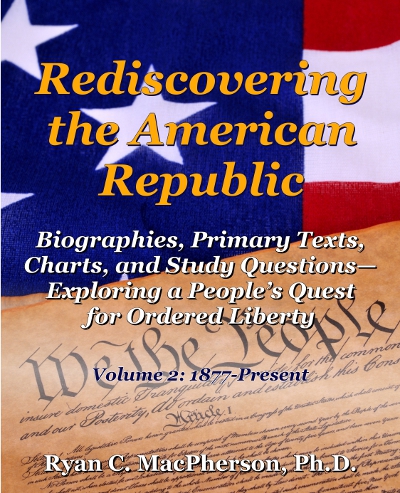In addition to being Mother's Day, the Sunday of May 10, 2020, also is the Fifth Sunday of the Easter Season, observed historically as Cantate Sunday, from a Latin imperative meaning, “Sing!” The entrance prayer assigned for this Sunday is derived from Psalm 98: “Sing to the Lord a new song, for He has done marvelous things!”
But the governor of Kentucky announced shortly before Cantate Sunday that no singing would be allowed when churches reopen in that state. The Faithful may wish the preceding sentence to be merely another round of “fake news,” but it is real news about the civil government reducing the church to fake worship. In the words of the edict itself (still available here, but no longer on Kentucky's official site):
Places of worship should avoid congregational or choir singing during services, as doing creates a higher risk of spreading infectious particles. Houses of worship should consider alternatives to congregational singing, including by playing pre-recorded or live instrumental music (e.g. pianos and guitars - no wind instruments) during services.
(Hm. One of my daughters plays the flute, and another daughter plays the trumpet. Verboten, both!)
Reaction among Christians has been mixed.
A writer from the Gospel Coalition concurs with the State of Kentucky that congregational singing can endanger participants with airborne germs. Avoid singing? Sing more softly? Wear a mask? Keep the churched closed a few more weeks? The Gospel Coalition explores these and other options.
I could imagine an equally persuasive argument that singing keeps the air flowing in one’s lungs, thereby preventing pneumonia. Singing, indeed, might be safer than wearing a mask that traps warm, moist particles near one’s mouth and nose to be incubated and repeatedly inhaled.
Naturally, some congregations in Kentucky found the governor's no-singing order to be at odds with their constitutional right to religious free exercise. Two federal judges, in two parallel law suits, agreed, and in response to court orders, the governor amended the policy to read:
Singing during services creates a higher risk of spreading infectious particles. Choirs should avoid singing. Congregants should wear face coverings and consider a greater than six feet social distance from others if they choose to sing. Houses of worship should consider alternatives to congregational singing, including by playing pre-recorded or live instrumental music (e.g. pianos and guitars - no wind instruments) during services.
To recap: Choirs remain forbidden, but congregational singing might be tolerable, especially if everyone wears masks and no one toots a horn. For the moment, the governor’s revised directive remains available here, but I recommend you download a copy today if you'd like souvenir, since this is roughly the same URL from which the original version disappeared earlier today.
Let's paint the picture slowly, to let it sink in: people arrive single file, pacing off at six-foot intervals, declaring that they had their temperature checked first, and then sit down in a sanctuary reduced to 33% of its standard occupancy, where they worship by listening to a pre-recorded choir, perhaps daring also to sing through a mask?
The governor’s directive sounds more like Phantom of the Opera than church. For those unfamiliar with historic Christian worship practices, let me note two essential components, here reported from my own Lutheran tradition, but largely parallel to “the sincerely held beliefs” protected under the First Amendment for the Baptist churches that filed lawsuits in Kentucky:
- Gathering Together: “No matter what other activities the church may engage in, public worship is essential to its life and mission. Common assembly and worship foster spiritual development and perpetuate the common faith. ... The early Christians risked their lives to assemble for common worship. ... [W]e may well believe that even today without common worship the church in any given community would inevitably perish.” (Luther D. Reed, The Lutheran Liturgy [Philadelphia: Fortress Press, 1947], 3)
- Singing: “The Lutheran Reformation was marked by the triumphant restoration of popular participatin in the services, by a great increase in the number of communicants, and by an outburst of liturgical prayer, congregational song, and choral music of astonishing quality and extent.” (Reed, Lutheran Litrugy, 4) “Whenever and wherever Christians gather to worship and praise God, they sing songs.” (Carl Schalk, “Music and the Liturgy: The Lutheran Tradition,” in Lutheran Worship: History and Practice, ed. Fred L. Precht [St. Louis: Concordia Publishing House, 1993], 243)
By initially forbidding “gathering together,” and then allowing gathering while forbidding “singing,” and finally allowing individual-singing-through-masks while still forbidding choral singing, the governor has targeted activities that are essential to the free exercise of religion. While the intention might have something to do with a public health concern, the rights to freedom of assembly and religious free exercise remain in the First Amendment, and courts consistently have held that such fundamental rights may not be infringed upon except by “the least restrictive means” that serve a “legitimate” and “compelling state interest.”
As federal judges have increasingly been emphasizing, state governors curtailing public worship practices have generally failed to demonstrate that churches are a sufficient menace to public health to warrant such stark deprivations of First Amendment liberties.
Or, in simpler language: Let the church gather and sing!
Cantate!
Dr. Ryan C. MacPherson is the founding president of Into Your Hands LLC and the author of several books, including Rediscovering the American Republic (2 vols.) and Debating Evolution before Darwinism. He lives with his wife Marie and their homeschooled children in Casper, Wyoming, where he serves as Academic Dean at Luther Classical College. He previously taught American history, history of science, and bioethics at Bethany Lutheran College, 2003–2023 He also serves as President of the Hausvater Project, which mentors Christian parents. For more information, visit www.ryancmacpherson.com.


